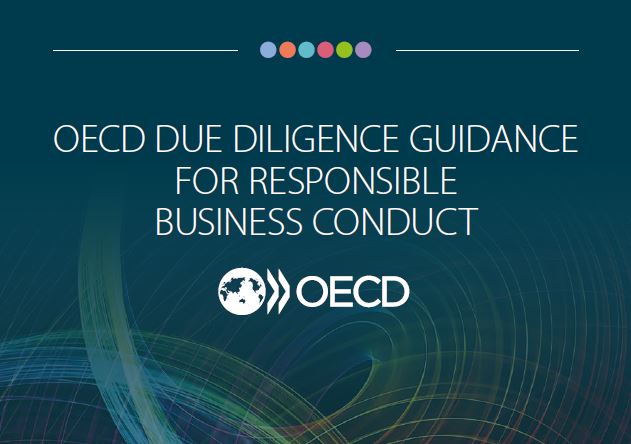The due diligence method
The OECD has developed a good and specific guidance for risk based due diligence for responsible business conduct.

Plain language
The objective of the guidance is to explain with clear and plain language how enterprises can conduct due diligence in accordance with the OECD guidelines. OECD has also developed sectoral guidance. However, this document provides an overall approach to due diligence as a method and includes explanations, tips and illustrative examples of due diligence. This Guidance also seeks to promote a common understanding among governments and stakeholders on due diligence for responsible business conduct
Contribute to sustainable development
One of the main principles in the OECD guidelines is that enterprises should contribute to a sustainable development and conduct due diligence to ensure that they cause no harm on people, society and the environment. Implementing due diligence recommendations can help enterprises avoid and address adverse impacts related to workers, human rights, the environment, bribery, consumers and corporate governance that may be associated with their operations, supply chains and other business relationships. If harm is caused the enterprise should stop, prevent or mitigate, remediate where this is required, and report on this work.
Ground-breaking agreement
The guidance is developed through a multi-stakeholder initiative including governments, business representatives, labour unions and civil society. Norway has contributed to the guidance with input from the government, Innovation Norway, NHO, the Council on Ethics, GIEK, Ethical Trading Initiative Norway and the civil society represented by Forum, Fokus and Amnesty Norway.
